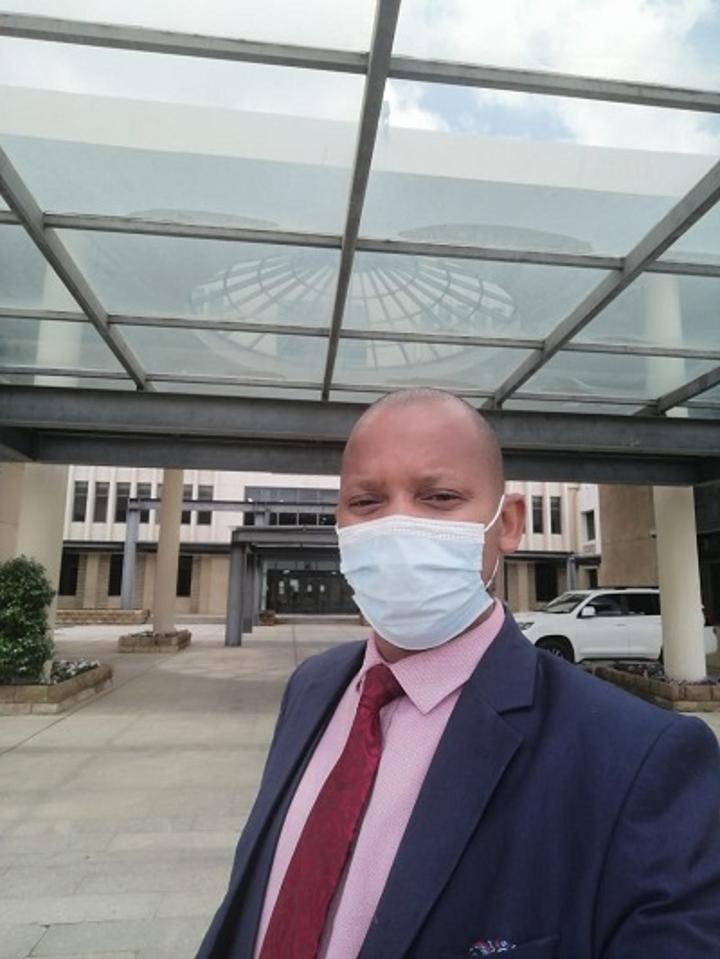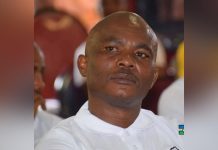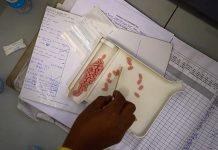Africa-Press – Lesotho. Dementia is the loss of cognitive functioning- thinking, remembering and reasoning to an extent that it interferes with a person’s daily life and activities.
Some people with dementia cannot control their emotions and their personalities may change. It is also defined as a syndrome in which there is deterioration in
cognitive function beyond what might be expected from the usual consequences of biological ageing. Research confirms that worldwide, around 55 million people have dementia, with over 60% living in
low- and middle-income countries. As the proportion of older people in the population is increasing in nearly every country, this number is expected to
rise to 78 million in 2030 and 139 million in 2050. To get a better understanding of what dementia entails Informative Newspaper had an exclusive interview with a specialist in the relevant
field, the Mind Liberation Psychology Consultancy Founder Dr Tšepang Majara. He indicated that Dementia is currently the seventh leading cause of death among
all diseases and one of the major causes of disability and dependency among older people worldwide. Dementia has physical, psychological, social and economic impacts, not only for people living with dementia, but also for their careers,
families and society at large. He added that there is often a lack of awareness and understanding of dementia, resulting in stigmatization and barriers to
diagnosis and care. He explained that the signs and symptoms affect each person in a different way depending on the underlying causes, other health conditions and the person’s cognitive
functioning before becoming ill. He added that it has three stages and stated that the early stage of dementia is often overlooked because the onset is gradual.
“The common signs are; forgetfulness, losing track of time, becoming lost in
familiar places. As dementia progresses to the middle stage, the signs and symptoms become clearer and include: becoming forgetful of recent events and
people’s names, becoming confused while at home, having increasing difficulty with communication, needing help with personal care, experiencing behavior
changes, including wandering and repeated questioning. The late stage of dementia is one of near total dependence and inactivity. Memory disturbances are serious and the physical signs and symptoms become more obvious and include
becoming unaware of the time and place, having difficulty recognizing relatives and friends, having an increasing need for assisted self-care, having difficulty walking, experiencing behavior changes that may escalate and
aggression,” Majara informed. “There is no treatment available to cure dementia, additionally, much can be offered to support and improve the lives of people with dementia and their carers and
families. The principal goals for dementia care are early diagnosis in order to promote early and optimal management, optimizing physical health, cognition,
activity and well-being, identifying and treating accompanying physical illness, understanding and managing behavior changes, providing information and
long-term support to care takers,” Majara enlightened. He noted that caretakers spent on average of five hours per day providing care for people living with dementia and that can
be overwhelming. He added that physical, emotional and financial pressures can cause great stress to families and care takers, hence he requests support from the health, social, financial and legal systems.
Informative Newspaper
also had an interview with ‘Mamosa Matlali who is nursing two of her grandparents aged 93 and 90 who have dementia. She narrated that they discovered that the 93 year old grandparents has dementia in 2021 after
she got badly ill and was admitted in hospital for high-blood pressure at the age of 91 and the other they discovered after the severe illness. “Prior to
them being diagnosed with dementia, we had been offered health education at church whereby people from health department taught us on how to care for people with dementia and identifying them in our families and communities.
That really help in preparing us to cope with accepting their situation and dealing with the challenges attached to the condition. I believe if not for the lesson
we got we would be amongst those who think people with dementia are wizards and calling them sorts of names that is due to the symptoms it presents,” Matlali
informed. Worldwide, around 55 million people have dementia, with over 60% living in low and middle-income countries. As the proportion of older people in the population is increasing in nearly every
country, this number is expected to rise to 78 million in 2030 and 139 million in 2050. World Health Organization (WHO)recognizes dementia as a public health
priority. It states that in May 2017, the World Health Assembly endorsed the ‘Global action plan on the public health response to dementia 2017-2025’.
The Plan provides a comprehensive blueprint for action – for policy-makers, international, regional and national partners and WHO as in these areas; addressing dementia as a public health priority, increasing awareness of
dementia and creating a dementia-inclusive society, reducing the risk of dementia, diagnosis, treatment and care, information systems for dementia; support for
dementia carers and research as well as innovation. “An international surveillance platform, the Global Dementia Observatory (GDO), has been established for
policy-makers and researchers to facilitate monitoring and sharing of information on dementia policies, service delivery, epidemiology and research. As a complement to the GDO, WHO launched the GDO Knowledge Exchange Platform
which is a repository of “good practices” in the area of dementia with the goal of fostering multi-directional exchange between regions, countries and
individuals to facilitate action globally?”, WHO research designate. WHO has developed towards a dementia plan WHO guide plan: a WHO guide, which provides
guidance to Member States in creating and operationalizing a dementia plan. The guide is closely linked to WHO’s GDO and includes associated tools such as a
checklist to guide the preparation, development and implementation of a dementia plan. It can also be used for stakeholder mapping and priority setting.
For More News And Analysis About Lesotho Follow Africa-Press






